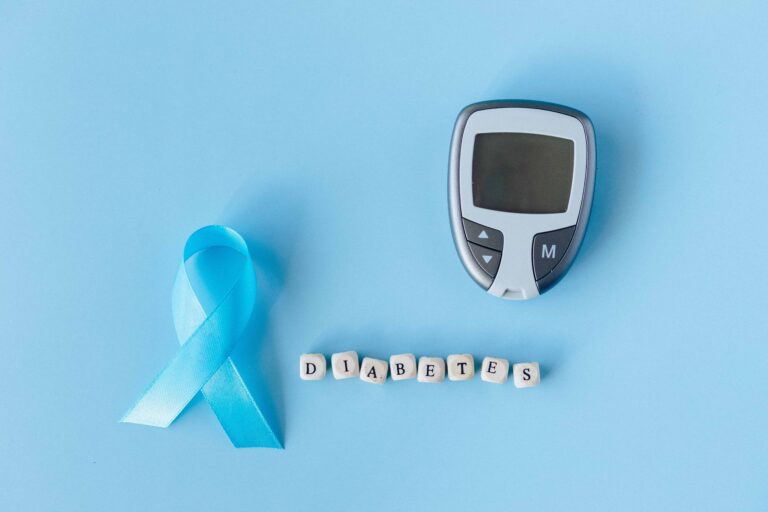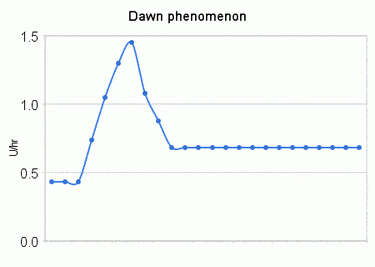Can Diabetes Cause Vertigo? What We Should Know
Can Diabetes Cause Vertigo? Let’s look into the link between diabetes and vertigo, and uncover how to manage dizziness and balance issues with diabetes!
Can Diabetes Really Cause Vertigo?

Vertigo Explained
Vertigo isn’t just a fancy word for feeling dizzy; it’s that weird spinning feeling like you’ve stepped off a merry-go-round but haven’t moved an inch. You might feel as if the room’s doing pirouettes or you’re living in a tilt-a-whirl ride even while safely planted on the couch. Pretty unsettling, huh?
Some signs to watch for:
- That strange merry-go-round sensation or like you’re gently swaying on a boat
- Dizzy spells that catch you off guard
- Possible hearing issues
- Feeling queasy
- Throwing up occasionally
Diabetes and Balance Issues
Believe it or not, diabetes and balance are sometimes like dodgy dance partners, especially when rogue sugar levels are at play. It’s a bit of a spooky combo: high sugar can mess with those tiny, important cells in our ears, leading to dizziness and balance wobbles for folks with wonky sugar levels.
For those managing diabetes, these ear-related glitches might tip the scales toward more serious balance problems causing vertigo. It’s all about dialing down those sugar highs to keep your step steady and avoid unexpected tumbles.
Curious for more brain fodder on this topic? Check out our spins on whether diabetes can cause seizures, if anorexia can lead to diabetes, and what happens if you try donating plasma while managing diabetes.
Connection Between Diabetes and Vertigo

Research Findings
Let’s talk about how diabetes and feeling dizzy might be better pals than you’d wish. Ever felt like the room’s spinning and your feet are jelly? That’s vertigo for you. For those with diabetes, this dizzy dance is a bit more common, and here’s why.
There’s some decent evidence out there pointing to folks with diabetes having a rougher time with vestibular stuff—fancy talk for balance issues. Like Siren Care mentions, high blood sugar might mess with your ear cells, making your world a spin class minus the bike. Especially if your diabetes isn’t behaving.
On top of that, those living with diabetes often come across benign paroxysmal positional vertigo (BPPV) more often than those who don’t have diabetes. A smarty-pants group publishing in Seminars in Hearing found that 46% of diabetic patients dealt with BPPV, against 37% without.
Another twist in this dance is dehydration. Lacking water—common in type 2 diabetes—can crank up dizziness levels, as our chums at Medical News Today explain.
And don’t get us started on some diabetes meds. They can sometimes turn the world into a tilt-a-whirl, as Medical News Today points out.
| Condition | Effect on Diabetes | Source |
|---|---|---|
| Vestibular Dysfunction | High sugar hurts ear cells | Siren Care |
| Benign Paroxysmal Positional Vertigo | More common in diabetics | Seminars in Hearing |
| Dehydration | Frequent in Type 2 diabetics | Medical News Today |
| Medication Side Effects | Dizziness can occur | Medical News Today |
Preventing Falls with Diabetes
With all this rollercoaster of balance and dizziness, keeping those feet steady and avoiding gravity-based hugs is pretty important for diabetic folks. So, how do we outsmart Mr. Vertigo?
- Get Moving: Exercise is your buddy here. Strength and balance exercises can cut down fall risks. Yoga or tai chi, anyone?
- Drink Up: Staying hydrated keeps dizziness at bay. Especially when diabetes tries to play funny with your thirst.
- Sugar Control: Keeping tabs on your blood sugar might help your balance ear parts stay friendly.
Talking to your healthcare go-to about meds and treatments that might upset your balance is smart. If vertigo comes knocking too often, vestibular rehab therapy could be your new best friend. Want to know more about diabetes and its quirks? Check out our guide on can diabetes cause seizures.
Tackling Dizziness with Diabetes
Dealing with dizziness when you’ve got diabetes can feel like a juggling act, but don’t worry—there are ways to keep your balance (literally and figuratively).
Treatment Options
Let’s talk about your game plan for managing vertigo if you’re dealing with diabetes. One great move is to hook up with a physical therapist who’s a whiz in balance training or vestibular rehabilitation. These folks can teach you some nifty exercises that help your ears chat more effectively with your brain about staying upright.
| Treatment Option | Description |
|---|---|
| Vestibular Rehabilitation | Workouts to help your ears and brain team up better for balance. |
| Medications | Anti-dizzy pills like Meclizine to keep the spins at bay. |
| Lifestyle Adjustments | Drink more water than a fish, sleep like a baby, and keep those blood sugar levels in check. |
| Diabetic Management | Steady those blood sugars to avoid messing with your nerves or inner ear. |
If dizziness is a daily guest in your life, definitely get the pros involved to suss out why. Diabetes along with the cause and effect on high blood sugar can do a number on your inner ear’s peace of mind (vertigo), so keeping that in check is key.
Handling Balance Problems
Nailing down balance troubles is super important to sidestep falls, and trust us, nobody wants to test how hard the floor is. Folks with diabetes run a bigger risk of taking a tumble ’cause of how it messes with the senses that keep you standing tall.
| Consideration | Action |
|---|---|
| Fall Prevention | Lean on canes, walkers, or anything that helps keep you steady Eddie. |
| Home Safety | Ditch the tripping hazards and put in some grab bars where they count. |
| Regular Exercise | Pump up your stability with strength and balance workouts. |
| Routine Hearing and Vision Check-ups | Keep tabs on ears and eyes—they’re key players in the balance game. |
Getting hip to things like vestibular dysfunction and jumping on it with proactive steps can change the game. If the world’s spinning way too often, it’s time to chat with a doc. They’ll show you how to tackle diabetes-related dizziness and avoid those not-so-graceful spills.
By keeping ourselves in the loop and taking action, we’re well on our way to handling vertigo and staying steady on our feet. And hey—check out our other resources on things like seizures from diabetes, or how diabetes ties into other conditions if you’re curious.
Diabetic Neuropathy and Dizziness
We’re diving into how diabetic neuropathy and dizziness are hooked together, and trust us, this is crucial for anyone living with diabetes. One of the big reasons behind the dizzy spells is something called vestibular dysfunction.
Vestibular Dysfunction in Diabetics
Let’s break it down: this fancy term basically means there’s some trouble brewing in the inner ear that messes with your balance. If you’ve got diabetes, odds are you’ve tangled with benign paroxysmal positional vertigo (BPPV) more often than those without. Some number wizardry shows us that 46% of folks with diabetes experience BPPV, compared to 37% of those without. (Seminars in Hearing).
Diabetes cranks up the chances of having vestibular dysfunction. The longer you’ve had diabetes, or the higher your hemoglobin A1c levels soar, the bigger your risk. Throw in complications like eye troubles or peripheral neuropathy and you’ve got a cocktail that can really damage cells in your ear, leading to those woozy moments. (Siren Care).
| Diabetic Condition | Prevalence (%) |
|---|---|
| BPPV in Diabetic Patients | 46 |
| BPPV in Non-Diabetic People | 37 |
Risk Factors for Balance Problems
Got diabetes and feeling wobbly? You might blame it on a few culprits. High blood sugar hanging around too long, having diabetes for years, and causing complications like vertigo, retinopathy or peripheral neuropathy are all suspects. When your nerves get damaged, especially ones involved with balance, it’s a recipe for vestibular dysfunction, which is pretty common among diabetic folks. (source).
Dizziness and balance hiccups put those with diabetes on a slippery slope, upping the chance of falls. Falling isn’t just a little bump — it can cause serious harm, so stopping it before it starts is the way to go. Keep an open mind and look for all the possible reasons if you’re feeling lightheaded or unsteady.
Feel like digging into more mysteries? Check out some other diabetic twists and turns: can diabetes cause seizures, can anorexia cause diabetes, can chemo cause diabetes, or see if you can donate plasma with diabetes to broaden your diabetes-related horizon.
Image Credit







Leave a Reply